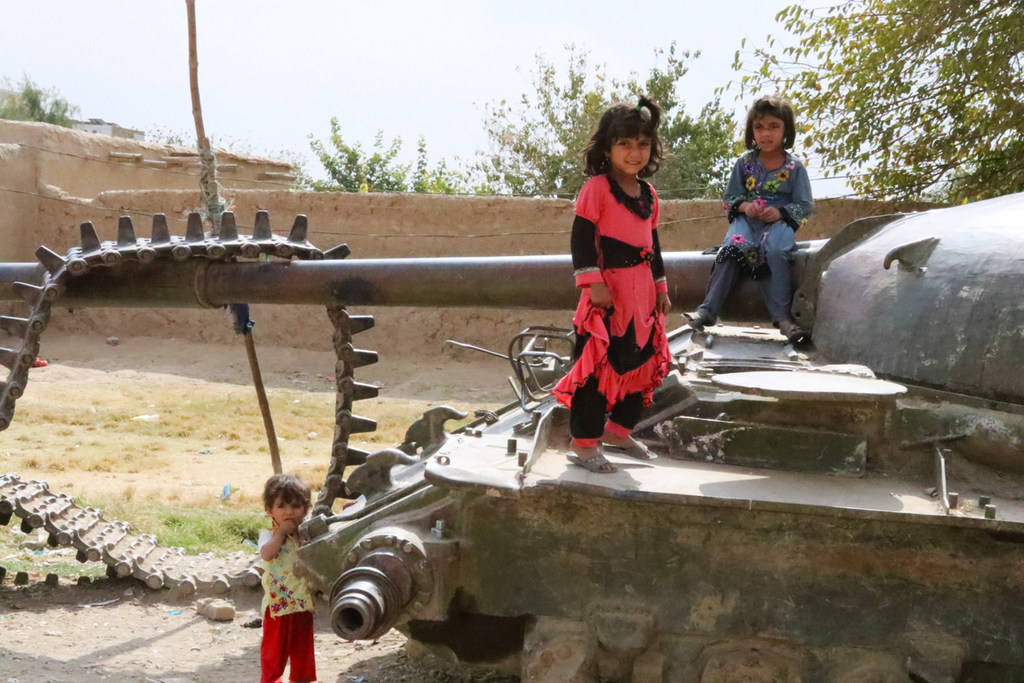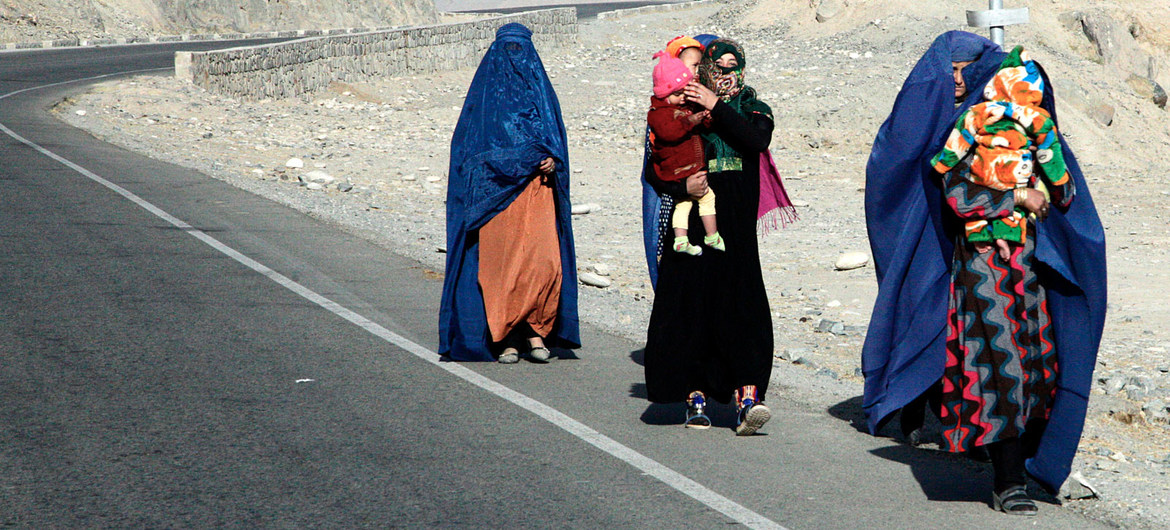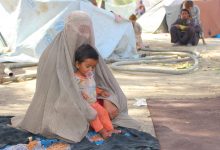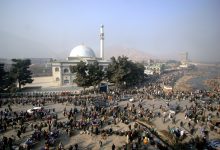Amidst ‘heightened intensity’ actions toward peace must be ‘in the best interests’ of Afghans
 Amidst a period of “heightened intensity”, the UN Special Representative told the Security Council on Tuesday that the killing, displacement and suffering of the Afghan people “must end now”.
Amidst a period of “heightened intensity”, the UN Special Representative told the Security Council on Tuesday that the killing, displacement and suffering of the Afghan people “must end now”.
More than six months after formal Afghan peace negotiations between the Government and Taliban representatives were launched in September, Deborah Lyons, who also heads the UN Assistance Mission in Afghanistan (UNAMA), said via video conference that now was “a timely moment to take stock” and assess what must be done to support the path towards peace.
She told ambassadors that she was encouraged to hear from both sides gathered in Doha, Qatar, that “real substantive progress” was being made on key agenda items but upheld that “more must be done to demonstrate to Afghans that the negotiations are progressing in the real interests of the Afghan people”.
The UNAMA chief said that from neighbours to regional players and international partners, everyone has the responsibility to ensure that actions are “integrated, mutually reinforcing, and, most importantly, are in the best interests of the Afghan people”.
Complicated peace
Decades of conflict have created grievances on all sides, a lack of trust amongst the parties and profound differences over an end State, according to the Special Representative.
Yet peace is possible with patience and commitment from all sides.
Although “we always knew that this would be a complicated peace”, she said: “Afghans are not just ready for peace: they are demanding it”.
“All sides need to stop the violence” she underscored.
Unprecedented levels of violence
Ms. Lyons noted that the recent phase of peace talks has not had a positive influence on civic life or civilian casualties, as targeted and brutal attacks persist.
“I am very sorry to report that in the first two months of 2021, we have witnessed the continued trend of rising civilian casualties, documented since the start of the Afghanistan Peace Negotiations”, she informed the members.
Pointing to more than 80 UNAMA-documented Afghans killed, she said that “this does not convey the full and crippling impact of the violence”.
“For every Afghan killed, there are many more who leave their professions, or sadly, feel that they must leave their country”.
Women’s presence vital
“Women must and will inform discussions on all topics of peace”, the Special Representative said, adding that they must be “present in the room and at the table when the future of the country is decided on”.
Reminding that this is not the Afghanistan of 20 years ago, she recalled that half of the population was born after the Bonn Agreement was signed in 2001 – following the invasion of the country in response 9/11- and has grown up with aspirations for a proper education, in a country where women have economic and political power and civil society has the space to flourish.
“They deserve to have their voices heard during the negotiations – and to have the inherent right to an active and substantial role in Afghan society after a peace agreement is concluded”, Ms. Lyons stated.

UNAMA/Torpekai AmarkhelAfghan women walk to Kishm in rural Badakshan.
Daunting humanitarian crisis
The UNAMA chief also spoke of a “deepening humanitarian crisis” with food security at unprecedented levels as drought spreads and pledges of support dwindle.
She pointed to the “illegal and unjustified” targeting of humanitarian workers that are triggering “grave consequences for the lives and livelihoods of Afghans”.
“We need the violence to decrease, we need the access to increase, we need additional funding, and we need the all-important NGO community to be allowed to do their important work”, Ms. Lyons spelled out.
On “a happier note”, the Special Representative reported progress on fighting the spread of COVID, thanks in part to India’s generous vaccine donations.
Citing the withdrawal of international troops, Ms. Lyons said that the coming months could mark a turning point for the country and assured that UNAMA would continue working with all partners “to foster a coherent process for the much-needed peace”.
Exhausted by war
According to Shaharzad Akbar, Chairperson of the Afghanistan Independent Human Rights Commission, “Afghans are exhausted by war and yearn for peace” – a hope that can only be sustained through a rights-based peace process.
Ms. Akbar highlighted the “failure of public confidence” that inevitably follows when women’s contributions are patronized or marginalized and urged that “robust reparations” be made to the many victims of violence and other rights abuses that have long vexed women and cultural minorities.



